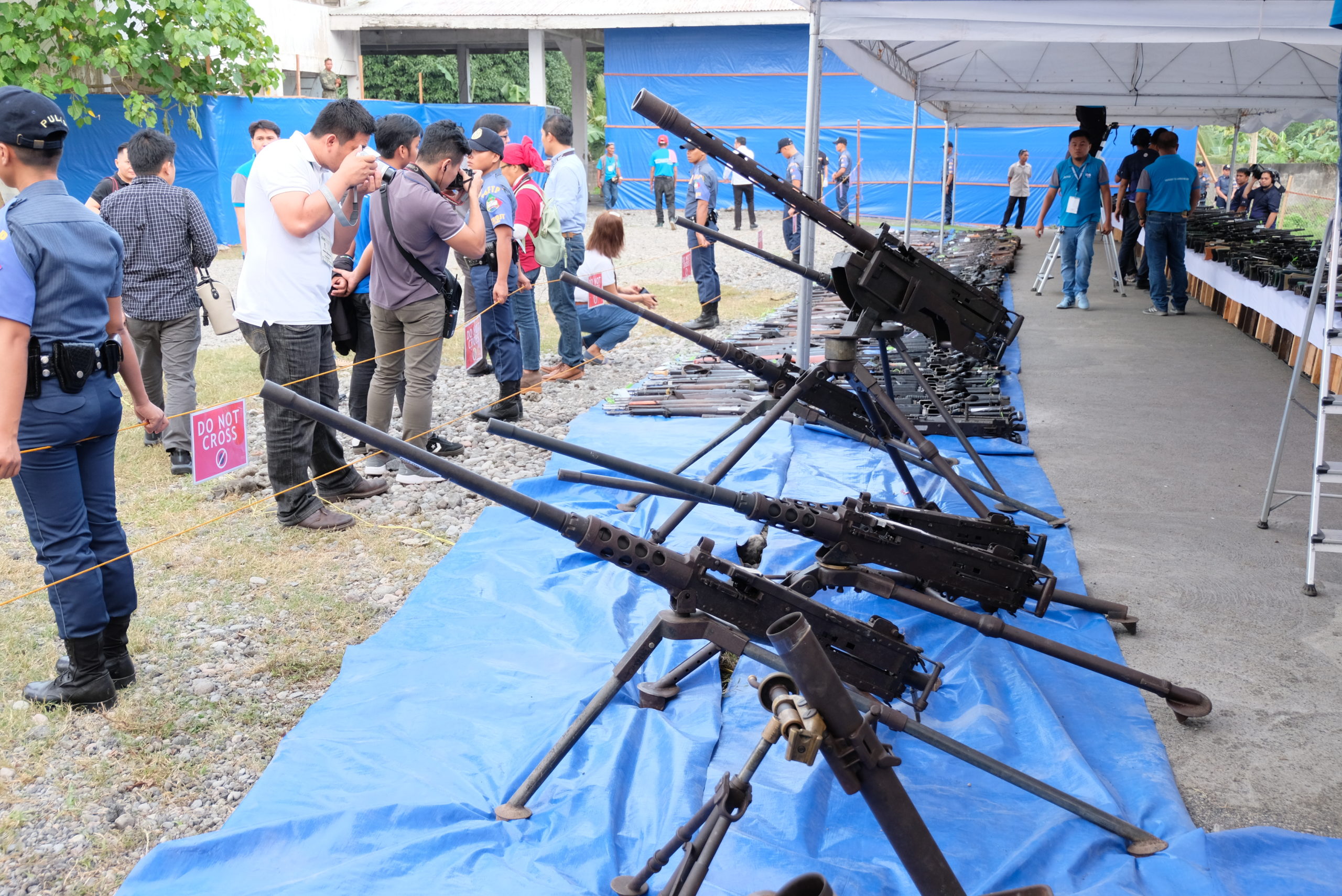
FILE PHOTO shows MILF fighters and their weapons that were deactivated during the second phase of the decommissioning, which was launched in September last year. BONG S. SARMIENTO
MANILA, Philippines — The coronavirus (COVID-19) pandemic has affected the ongoing normalization progress—including the peace process—in the Bangsamoro Autonomous Region in Muslim Mindanao (BARMM), Bangsamoro Planning and Development Authority (BPDA) Director-General Mohajirin T. Ali said Wednesday.
During an online hearing of the House committee on peace, reconciliation, and unity, Ali reported that funds are “scarce” as the country continues to grapple with the coronavirus pandemic.
“Due to the COVID-19 pandemic, movements by peace workers as well as international peace partners are seriously affected, and consequently funds are also scarce,” Ali said.
“Seriously hit is the coffer of the [government of the Philippines] in providing funds especially for the decommissioned combatants,” he added.
A part of the peace process is the provision of monetary and non-monetary assistance to decommissioned Moro Islamic Liberation Front (MILF) combatants that includes cash advances, housing packages, socio-economic and livelihood programs.
“If all the 40,000 MILF combatants will be fully decommissioned, it would require P40 billion in terms of cash, socio-economic package, and housing facilities. This is a staggering amount,” Ali said.
Moreover, Ali said the pandemic is only one of the reasons why the implementation of the normalization progress in BARMM is taking so long.
Ali said that the decommissioning of MILF combatants is not simply about demilitarising them by taking their weapons, as it also involves activities “aimed at achieving a smooth transition for MILF combatants to productive civilian life.”
In his report, Ali said that out of 40,000 combatants submitted by MILF, only 12,145 were decommissioned and out of 7,500 weapons owned by the group, only 2,500 have been decommissioned so far.
Ali, however, underscored that the government is only on its second phase of decommissioning.
Decommissioning of MILF combatants is only one of the components of the normalization progress in BARMM.
According to Ali, normalization aims to ensure human security in the Bangsamoro region to help build a society “that is committed to basic human rights where individuals are free from fear of violence or crime.” Thus, this includes the ongoing peace process with the MILF.
Other components of the normalization in the BARMM include the disbanding of private armed groups as well as confidence-building measures such as pardon and amnesty for six acknowledged camps of the MILF.